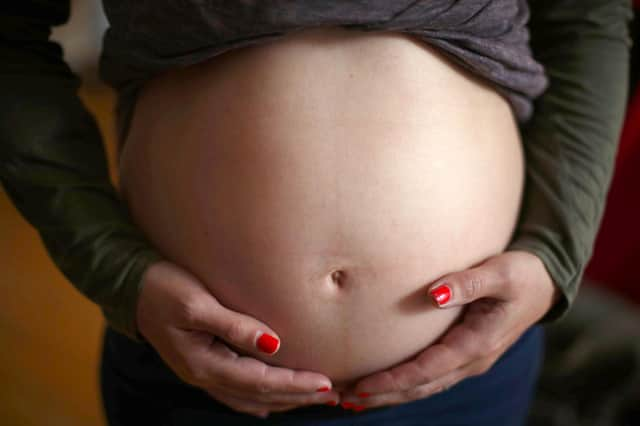New mothers more isolated than ever at Northern Lincolnshire and Goole Trust during pandemic


Women giving birth at Northern Lincolnshire and Goole Trust have felt more isolated than ever during the coronavirus pandemic, a survey suggests.
The National Childbirth Trust said the removal of support from partners or family members as a result of Covid-19 restrictions caused extreme anxiety and fear for expectant mothers.
Advertisement
Hide AdAdvertisement
Hide AdThe Care Quality Commission polled 23,000 women aged 16 and over across England who gave birth in February 2021 on their experience of maternity services – including 132 at Northern Lincolnshire and Goole NHS Foundation Trust.
Patients were asked a range of questions and gave a score between 0 – indicating a very negative experience – and 10, representing the best possible result.
When asked if their partner or someone else was able to stay with them as much as they wanted, mothers gave Northern Lincolnshire and Goole Trust an average score of just 2.3 out of 10.
This was down from 7.1 in 2019 – the last time the survey was held – and the lowest figure since it began in 2015.
Advertisement
Hide AdAdvertisement
Hide AdAcross England as a whole, a score of 3.5 was awarded for the same question, compared to 7.5 two years earlier.
Just 34% of women said their partner was able to be with them as much as they wished – down significantly from 74% two years earlier, and the lowest proportion on record.
Elizabeth Duff, senior policy adviser at the NCT, said: "The impact of the removal of this support and advocacy can be immense.
"We have heard reports of women experiencing extreme anxiety, fear and isolation as a result."
Advertisement
Hide AdAdvertisement
Hide AdJust 61% of women nationally said they saw or spoke to a midwife as much as they wanted during the postnatal period, which Ms Duff said is an area of great concern.
She added: "This is an exceptionally vulnerable time for mothers and babies, so this lack of access to help risked real danger to both at a time when support from family and friends was more restricted too due to lockdowns."
Mothers gave Northern Lincolnshire and Goole Trust a score of 6.2 out of 10 for how much they saw or spoke to a midwife, and 8.4 for whether they received the help needed from a midwifery team.
Meanwhile, the trust was given a score of 9 for its mental health support.
Advertisement
Hide AdAdvertisement
Hide AdDespite restrictions in place, almost all of the women polled across England said they were treated with respect and dignity, and that they had confidence and trust in staff.
The Royal College of Midwives praised the hard work of midwives under "immense pressure", but said severe staff shortages meant one in five women were not offered a choice of where to have their baby.
Birte Harlev-lam, executive director midwife at the RCM, welcomed the Government’s commitment to recruit midwives but warned England desperately needs thousands more.
She added: "If the shortage is not urgently addressed and prioritised, our maternity services will continue to struggle to support women.
Advertisement
Hide AdAdvertisement
Hide Ad"More midwives mean women will get the care, time and support they truly deserve.”
The Department for Health and Social Care said the number of NHS midwives has increased by more than 12% since 2010 and it is aiming to hire an additional 1,200.